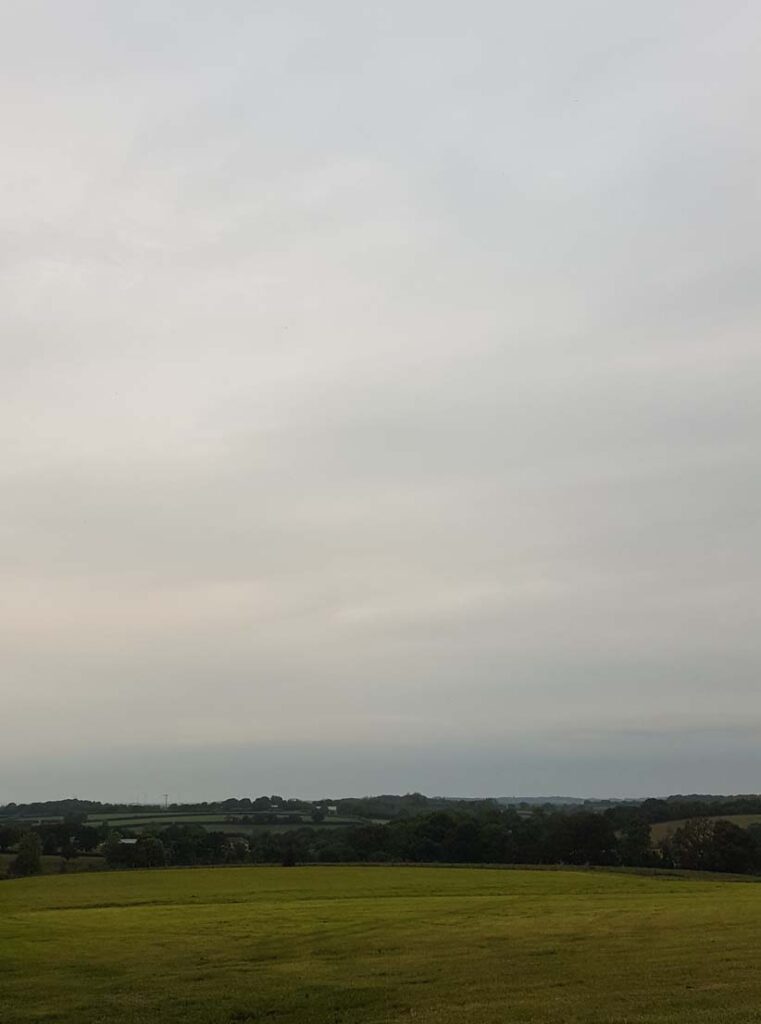
Here’s the view from our camping pod, early on Sunday morning, nipping out to the loo. It was wonderful to be somewhere different and look out on rolling hills. It’s a fabulous farm, not far from us, where the sense of how much John, the farmer, and his family, care for their land, is tangible. There’s something very special about showing my children just where their food comes from, and the amount of work that goes into making quality produce.
I happened to be reading Chris Stringer’s Homo Britannicus while we were away, and a section in chapter 3 made me savour the hard work of good farmers all the more. During one of the warm interglacial periods in Britain’s history, archaeologists were perplexed to understand why evidence for human occupation came to an abrupt halt. There’s still a lot of mystery around this, but researchers found evidence of burning, deforestation and soil erosion. Such environmental degradation would have made life untenable and it may well have been caused by humans, employing a slash and burn economy approach to forests, which ultimately back-fired. It’s easy for us humans, with our relatively short lifespans, to miss the damage we do to the planet – we don’t see the impact of successive generations employing exploitative land practices, but archaeologists are looking at time spans of thousands of years.
The warning of history is clear, exploitative land practices such as the intensive cattle feedlots you see in America, or large-scale crop monocultures supported by heavy pesticide use, do degrade soils, often irreparably. Here in Devon, we are lucky to retain a patchwork of small, family run farms, where even bad farmers understand that if they want their families to remain farming on the land for successive generations, they have to care for the soil now, mindful of its long-term health. For those of us lucky enough to live nearby, but unlucky enough not to have land of our own, we can be beneficiaries of that local economy… but, we need to be prepared to pay for it, and that means valuing more than just profit margins and getting a ‘good deal’ (monetarily but in no other way) on our weekly shop.
Back at home, the kitchen saga rumbled on. Little Owl was sent home to isolate after a close contact at school tested positive for Covid. Thankfully the latest lot of fitters were happy for her to stay isolated in the attic, using a different loo, and on we went. While it’s still not quite finished, we now have a working hob and oven, and a delicious looking joint of beef from John to cook in it!






